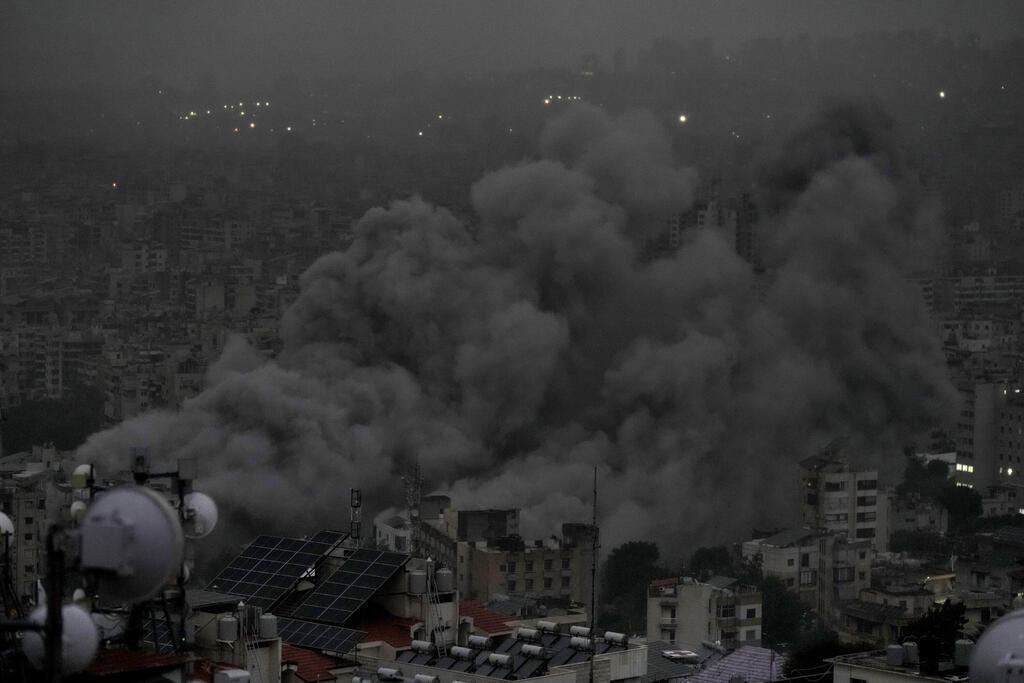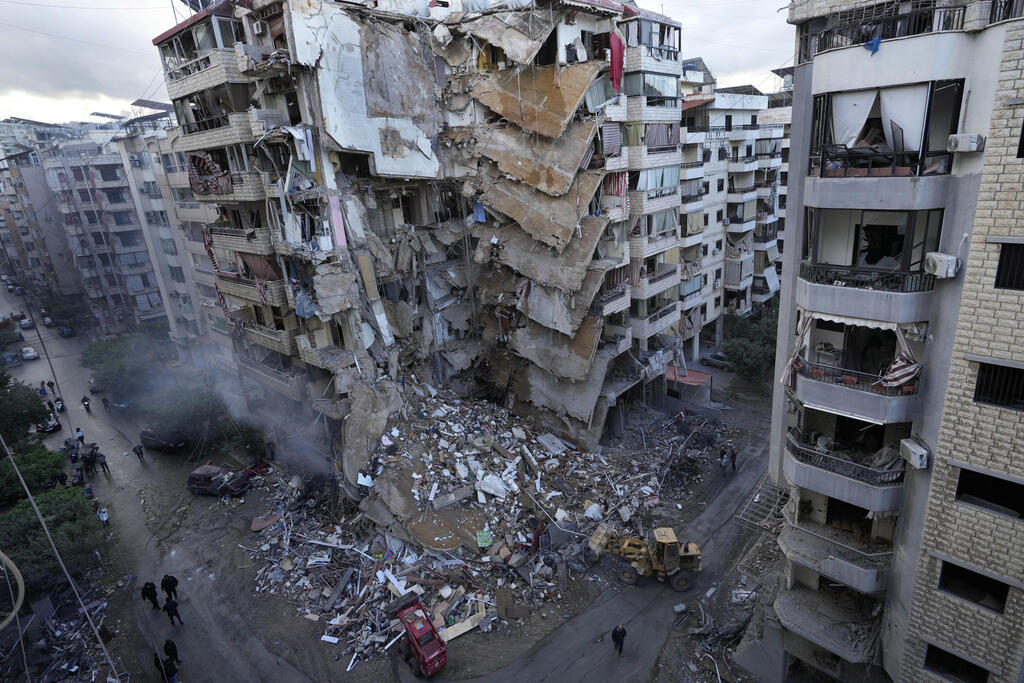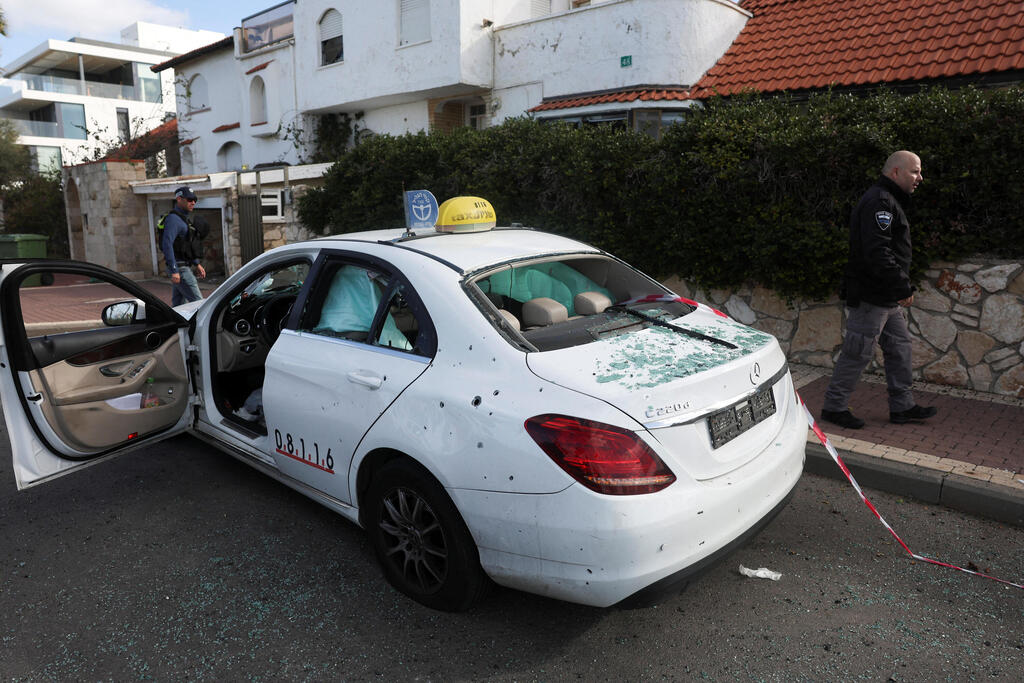Getting your Trinity Audio player ready...
After nearly 14 months of clashes and exchanges of fire between Israel and Hezbollah, cease-fire seems ever closer with Israel reportedly having given its approval to end the hostilities.
Lebanese officials and a Western diplomat told Reuters that Washington has informed Beirut a cease-fire could be announced "within hours," pending approval by the Security Cabinet, which is scheduled to convene Tuesday. These are the key provisions of the emerging agreement.
4 View gallery


Prime Minister Benjamin Netanyahu, US President Joe Biden and Hezbollah Secretary-General Naim Qassem
(Photo: AP Photo/Hassan Ammar, REUTERS/Evelyn Hockstein, REUTERS/Mohamed Azakir)
Israeli withdrawal timeline: Under the proposed agreement, Israeli ground forces would begin withdrawing from southern Lebanon within 60 days of the cease-fire's implementation.
The withdrawal, described as a “pilot phase,” aims to assess the feasibility of the arrangement. Once completed, Israel plans to call on northern residents displaced by the fighting to return home. During this interim period, Hezbollah is expected to retreat north of the Litani River.
Border negotiations: The agreement also stipulates that Israel and Lebanon will begin negotiations over disputed border points following the implementation of the cease-fire. However, Israel cannot be compelled to accept specific compromises.
Deployment of Lebanese Army and UN peacekeepers: The Lebanese Armed Forces (LAF) and the United Nations Interim Force in Lebanon (UNIFIL) would replace withdrawing Israeli troops south of the Litani.
These forces would oversee the dismantling of remaining Hezbollah infrastructure in the area and ensure the terror group does not reestablish its presence. Additionally, LAF, with UNIFIL support, would monitor and prevent weapons smuggling and production within Lebanon, bolstered by Western military aid from the U.S., UK and France.
International oversight mechanism: A U.S.-led international enforcement committee would be established to oversee compliance with the agreement, drawing on UN Security Council Resolution 1701, which followed the 2006 Lebanon War.
The committee would include Britain, Germany and France, despite Israeli opposition to French involvement. Israel has conditioned its acceptance of France's role on assurances that Paris will not enforce International Criminal Court arrest warrants against Prime Minister Benjamin Netanyahu or former defense minister Yoav Gallant.
The Lebanese sought involvement from the United Arab Emirates, Egypt and Jordan in the agreement, but none of these countries have officially declared they will take part in the committee. However, it is likely that at least one Arab state will play some role. The international mechanism is expected to assist the LAF and UNIFIL in enforcing their responsibilities under the agreement.
The committee is also tasked with determining whether to allow one side to use force if the other violates the agreement. On this issue, the agreement does not mandate a specific timeline for a response. This means that if Israel identifies a threat from the Lebanese side that breaches the agreement, it will be able to act immediately.
Hezbollah prisoners and targeted killings: The agreement stipulates that Hezbollah operatives captured by Israel during ground operations will not be returned to Lebanon. While Hezbollah sought guarantees against targeted killings of its leaders, Israel refused to commit, leaving the issue unresolved.
Get the Ynetnews app on your smartphone: Google Play: https://bit.ly/4eJ37pE | Apple App Store: https://bit.ly/3ZL7iNv
U.S. security guarantee for Israel: A separate U.S.-endorsed document not included in the Lebanese agreement preserves Israel's right to take immediate military action against direct threats, such as rocket launches or bombings. Israel would also retain the ability to interdict arms transfers from Syria to Hezbollah. For non-immediate threats, Israel would first refer cases to the enforcement committee.
Israeli officials highlighted differences between the emerging deal and UN Security Council Resolution 1701, amid criticism from northern residents and local leaders directed at Prime Minister Benjamin Netanyahu. Unlike the 2006 resolution, the new agreement establishes an international enforcement committee led by the U.S., which Israel believes will be more robust than previous reliance on UNIFIL alone.
The agreement also recognizes Israel's right to prevent Hezbollah’s rearmament and to address emerging threats south of the Litani River, which Israeli officials view as a significant step toward ensuring long-term security. Officials in Jerusalem expressed confidence that the incoming U.S. administration, led by President-elect Donald Trump, will support Israel's operational freedom under the deal.






